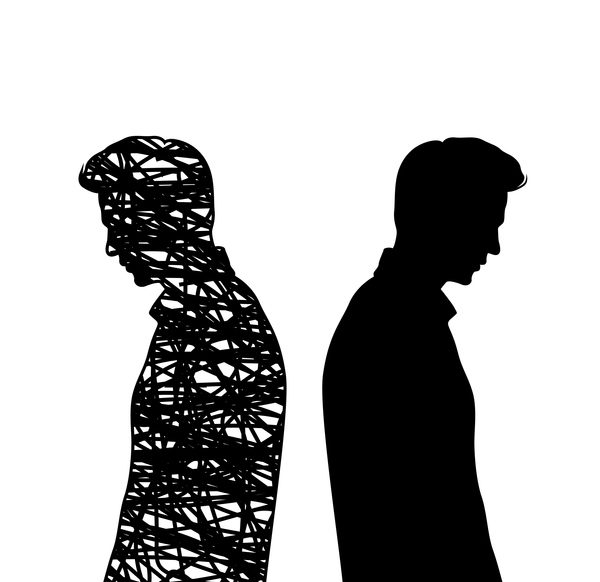Content reviewed by Christian Losch, LCSW, LCADC, CEO of Pinelands
What is the Relationship Between Compulsions and Addiction?
If you are concerned about your own substance use issue or that of your loved one, understanding more about what causes it and what concurring symptoms there might be can help you take steps forward. This is especially pertinent to people who experience or observe how compulsions might accompany addiction. According to research in the broader medical community, among those who seek treatment for compulsive disorders, one-quarter also suffer from addiction. Both compulsive behaviors and addiction can leave negative impacts on one’s physiological and mental health. They also unravel interpersonal relationships at work and in family life. They can make life so difficult. Moreover, compulsion and addiction have an intertwined relationship that sometimes becomes mutually reinforcing. It is very important to learn about their complicated relationship in order to care for yourself and your loved one.
Are Compulsions and Addiction the Same Kind of Disorder?
According to the American Society of Addiction Medicine (ASAM), “addiction” is defined as “a treatable, chronic medical disease involving complex interactions among brain circuits, genetics, the environment and an individual’s life experiences.” In the same definition entry, it also mentions that “people with addiction use substances or engage in behaviors that become compulsive and often continue despite harmful consequences.” So, the problem of compulsion is embedded in the broader issue of addiction.
Compulsion is defined as “a repetitive ritualistic behavior that a person performs without rational motivation.” It is often displayed an intense urge to do something eccentric to alleviate anxiety. Such behaviors include chronic gambling, excessive spending, hoarding, excessive cleaning, repetitive checking of door locks, etc. Usually, a compulsion is driven by certain fear that is irrational or illogical to ordinary people.
Although these two categories of health issues may overlap or interrelate, compulsions can be differentiated from addiction by the distinction of pleasure-seeking. People with compulsive disorders feel the urge to engage in behaviors that others may deem odd not to seek pleasure. Those with addiction do seek pleasure from substance use, although that level of pleasure may decrease over time. Another distinction between the two is that a person with compulsion is usually aware of the behaviors’ excessiveness. A person with addiction does not see it as a problem or prefers denial.
Scientists have also found that people who develop severe substance use disorder may also suffer from compulsion. Many believe that this has to do with the way chronic addiction changes how the brain works, which then leads to compulsive disorders and many other behavioral issues. Severe obsessive-compulsive disorder (OCD), if untreated, may lead to anxiety, depression and even suicidal thoughts.
Are Compulsions and Addiction Treated Differently?
The reason many people who have compulsive disorders resort to drugs and alcohol is because coping with the obsessions is exhausting and substance use can provide some short-term relief. The kind of social isolation caused by compulsion may also increase one’s risk of substance use. Because compulsion and addiction often overlap, especially among young people, the most effective way is to treat them at the same time. Nevertheless, it is still important to know that although addiction can lead to chronic disease, compulsions can be effectively treated with medication.
Many detox treatment and recovery centers treat both health issues through therapy such as cognitive behavioral therapy (CBT), group counseling like 12-step groups and medication. But because both compulsions and addiction encompass a wide range of behaviors, each case requires a specialized assessment and customized treatment plan.
How Is COVID-19 Changing Compulsion and Addiction Treatment?
Public health measures to combat COVID-19 may have worsened the epidemic of compulsive disorders and addiction in America. Triggers such as social isolation, the expectation to constantly sanitize and wash hands, loss of loved ones and fear of the unknown can all cause an uptick of compulsive disorders among the general population. It is likely that more young people will develop compulsive disorders during these years. Access to drugs and alcohol has not been limited because of shutdowns. All these demands updated treatment measures to address compulsion and addiction. For example, as the need for telehealth services increases, some treatment centers expanded their online treatment platforms to reach out to more young people.
If you are considering starting treatment for yourself or a loved one, the key is to stay connected to healthcare professionals who specialize in treating compulsion and addiction. If you have started treatment and are worried about maintaining sobriety or relapse triggered by recent events due to COVID-19, you should seek help from your counselors. They are best positioned to offer you the best treatment adjustments.
Those of us at Pinelands Recovery Center of Medford know that it may be enticing to use drugs or alcohol to cope with the stresses that come along with life changes. If you or someone you know needs help managing sobriety during transitions, call our facility today at (877) 557-5372 to begin your healing journey.
